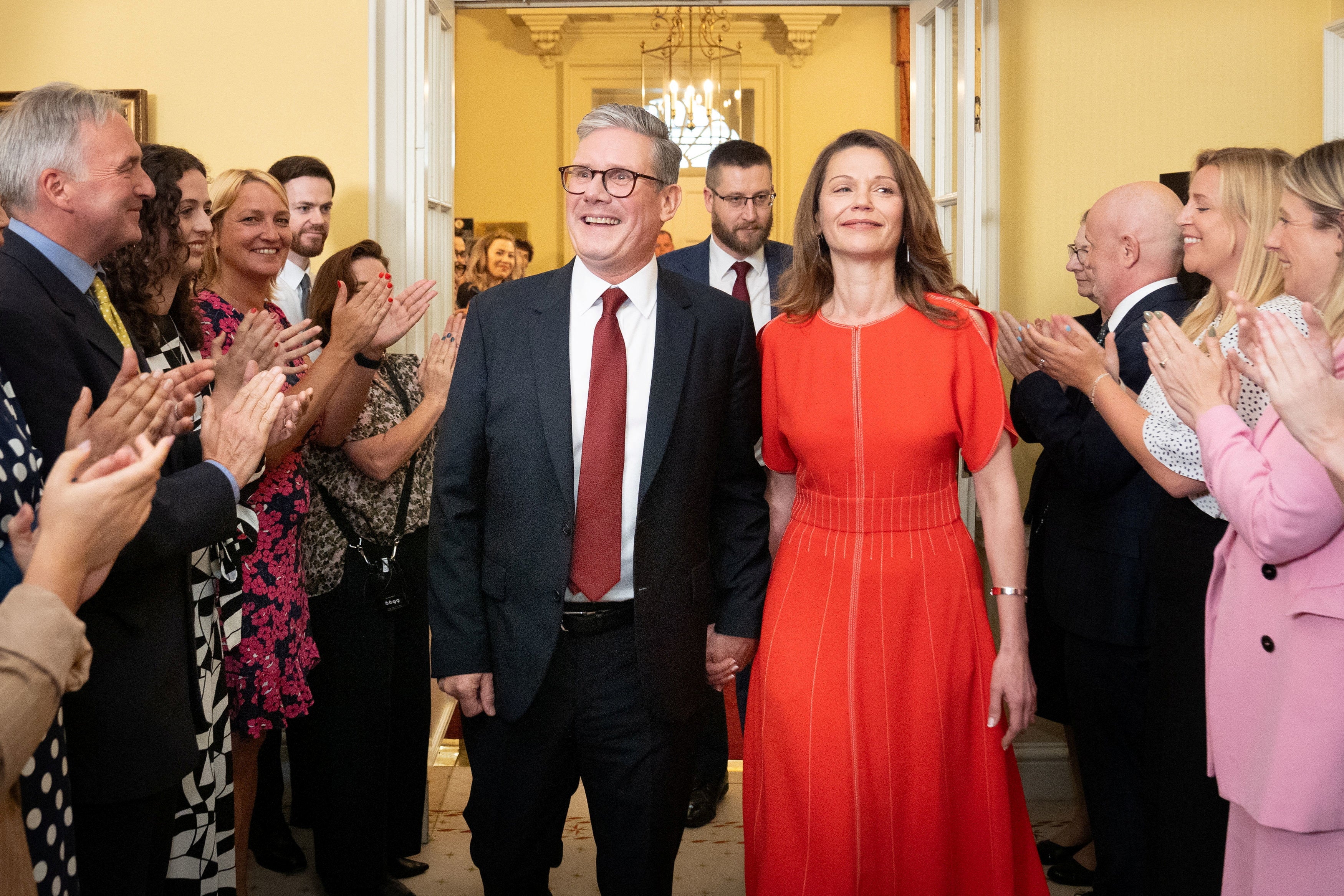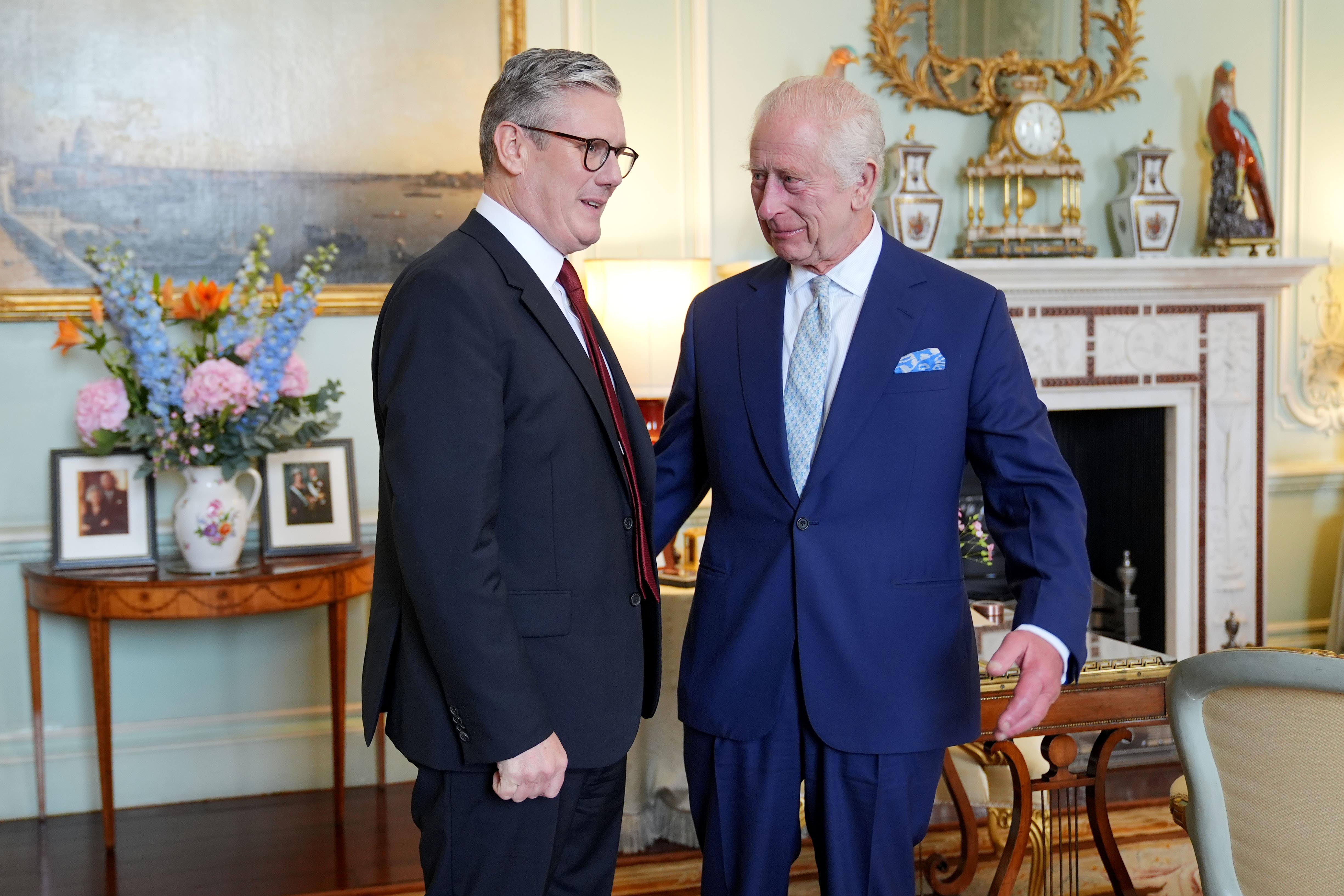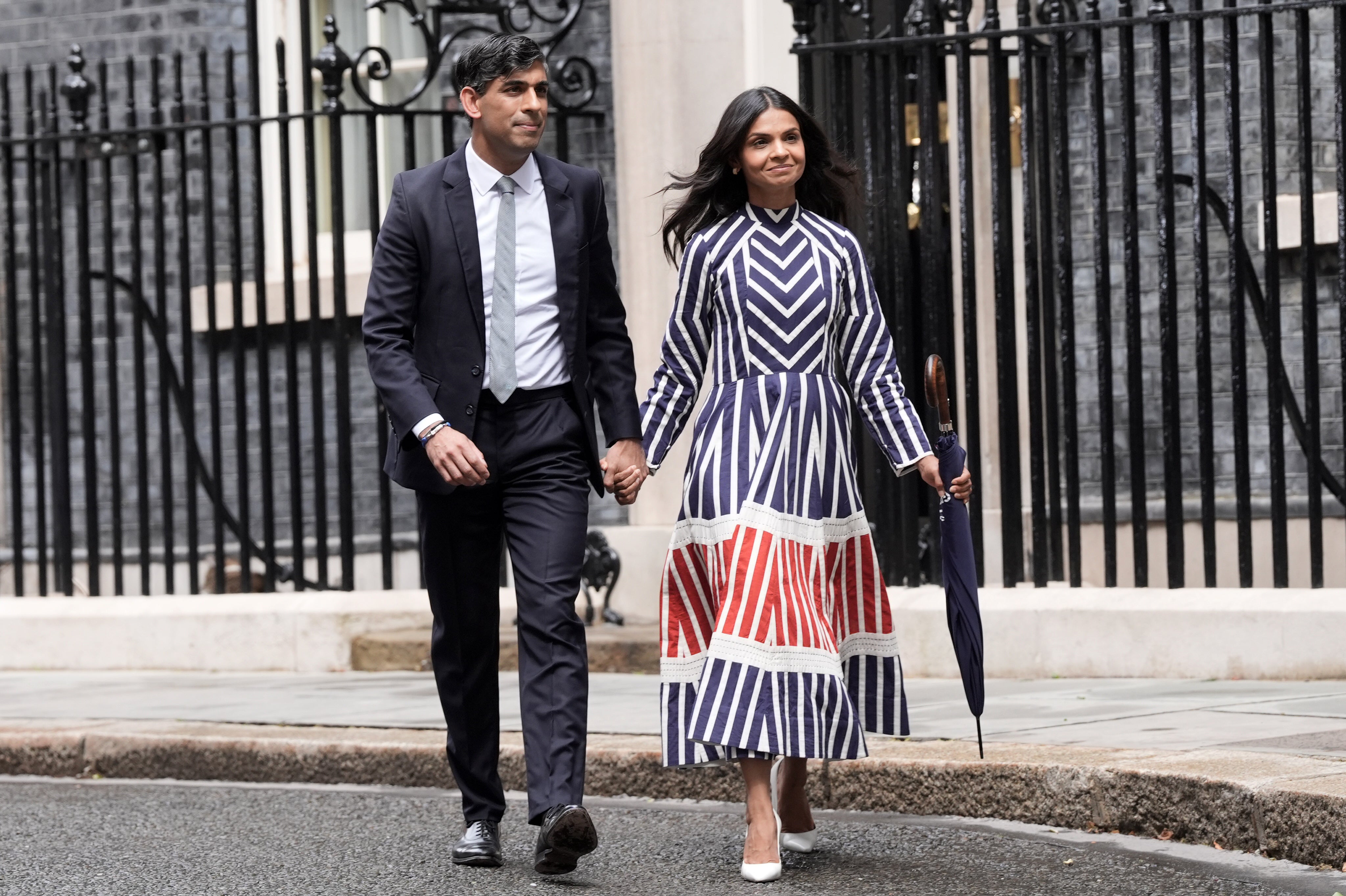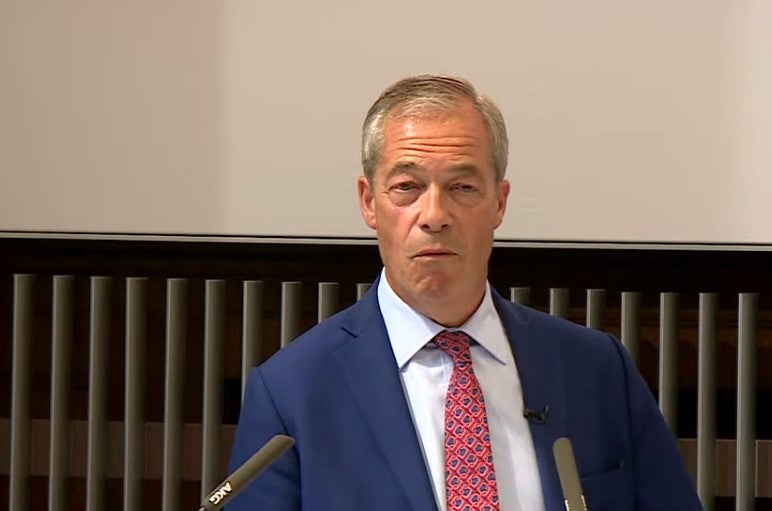Starmer ushers in new era with ‘urgent mission’ to renew Britain after Labour’s triumphant return to power
New prime minister says ‘Our work is urgent and we begin it today’ as Labour land huge 176 seat majority
Your support helps us to tell the story
From reproductive rights to climate change to Big Tech, The Independent is on the ground when the story is developing. Whether it's investigating the financials of Elon Musk's pro-Trump PAC or producing our latest documentary, 'The A Word', which shines a light on the American women fighting for reproductive rights, we know how important it is to parse out the facts from the messaging.
At such a critical moment in US history, we need reporters on the ground. Your donation allows us to keep sending journalists to speak to both sides of the story.
The Independent is trusted by Americans across the entire political spectrum. And unlike many other quality news outlets, we choose not to lock Americans out of our reporting and analysis with paywalls. We believe quality journalism should be available to everyone, paid for by those who can afford it.
Your support makes all the difference.Sir Keir Starmer triumphantly entered Downing Street on Friday, signalling a new era in politics and promising to fix Britain’s problems “with respect and humility”.
The Labour leader returned his party to power after 14 years in the wilderness with one of the biggest majorities in history – 176 seats.
After meeting King Charles, he stood on the steps of No 10 and declared: “Our country has voted decisively for change, for national renewal and a return of politics to public service. Our work is urgent and we begin it today.”
Labour won 412 seats, while the Tories suffered their worst result in history with just 121. Rishi Sunak announced he would quit as Tory leader and used his final speech in Downing Street to apologise to the British people and the Conservative Party.
But Sir Keir was only too aware that despite his huge majority, Labour only received 34 per cent of the vote in an election with a low turnout of 60 per cent. His party received fewer votes than when it was defeated under Jeremy Corbyn in 2019.
Labour was also helped by the rise of Nigel Farage’s Reform UK, which split the vote on the right, earning 15 per cent of the vote and five seats.
Sir Keir made it clear that his mission was to help those who “have been ignored” for too long.

“Nurses, builders, drivers, carers, people doing the right thing, working harder every day, recognised at moments like this before. Yet, as soon as the cameras stopped rolling, their lives are ignored.”
And he vowed: “My government will fight every day until you believe again.
“From now on, you have a government unburdened by doctrine, guided only by the determination to serve your interest, to defy, quietly, those who have written our country off.
“You have given us a clear mandate and we will use it to deliver change, to restore service and respect to politics, end the era of noisy performance, tread more lightly on your lives and unite our country.”

He added: “So with respect and humility, I invite you all to join this government of service in the mission of national renewal.”

As well as the lowest number of seats in their 190-year history, the Conservatives suffered the loss of 11 cabinet ministers, including Commons leader Penny Mordaunt and “big beasts” including former prime minister Liz Truss and former cabinet minister Sir Jacob Rees-Mogg.
Already a battle for the soul of the Tories is underway, with some blaming the party’s woes on a failure to be right-wing enough, leaving space for Reform; while others claim it has moved too far from the centre.
Suella Braverman, Priti Patel, Kemi Badenoch and Tom Tugendhat are among a collection of senior Tories to survive who could throw their hat into the ring to replace Rishi Sunak.
Earlier, Mr Sunak gave his last address to the nation as prime minister from the steps of Downing Street before going to the King to tender his resignation.
“To the country, I would like to say first and foremost, I am sorry,” he said. “I have heard your anger, your disappointment, and I take responsibility for this loss.”
Sir Keir also faces a challenge on both the right and the left, with Reform coming second to Labour in scores of constituencies, the Greens picking up a record four seats, and pro-Gaza independents causing discomfort for key figures. In Birmingham Yardley, Jess Phillips only narrowly held onto her seat – and was booed as she tried to make her acceptance speech.

The challenge from the left saw trusted lieutenant Jonathan Ashworth lose his Leicester South seat to a pro-Gaza independent and shadow culture secretary Thangam Debbonaire lose her Bristol Central seat to the Greens.
Additionally, Jeremy Corbyn, who was expelled from the party, won his Islington North seat as an independent and is now set to just miss out on becoming father of the House as the longest-serving male MP to Tory Sir Edward Leigh. However, his close friend and ally Diane Abbott, who was suspended as a Labour MP and only allowed to run for the party late in the day, will become the mother of the House.
Sir Ed Davey’s Liberal Democrats gained 63 seats, taking them to 71, their highest total since 1923 when they were the Liberal Party, as they swept up many blue-wall seats. This included the four former seats of three ex-prime ministers: Boris Johnson, David Cameron and Theresa May. The one failure was to not unseat chancellor Jeremy Hunt, who held on against the odds.
Labour made dramatic gains in Scotland, where it won 38 seats reducing the SNP to just nine and taking Scottish independence off the table, potentially for a generation.
Join our commenting forum
Join thought-provoking conversations, follow other Independent readers and see their replies
0Comments